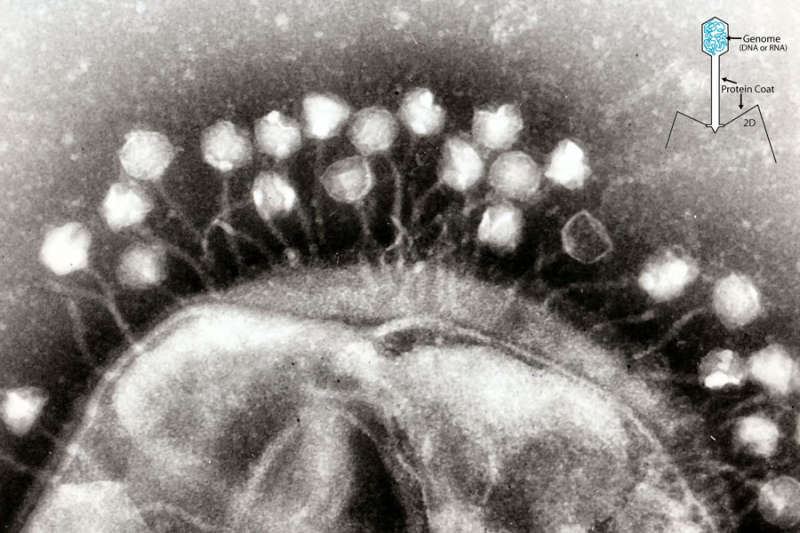Credit & Copyright: Wikipedia;
Insert: Mike Jones
Explanation:
There are more bacteriophages on Earth than any other life-like form.
These small
viruses are not clearly a form of life,
since when not attached to bacteria they are completely dormant.
Bacteriophages
attack and eat
bacteria
and have likely been doing so for over 3 billion years ago.
Although initially discovered early last century, the tremendous abundance of
phages
was realized more recently when it was found that a single drop of common seawater
typically contains millions of them.
Extrapolating,
phages
are likely to be at least a billion billion (sic) times more numerous than humans.
Pictured above is an
electron micrograph of over
a dozen bacteriophages attached to a single bacterium.
Phages are very
small --
it would take about a million of them laid end-to-end to span even one millimeter.
The ability to kill bacteria makes phages a
potential ally
against bacteria that cause human disease, although
bacteriophages
are not yet well enough understood to be in wide spread medical use.
1999 2000 2001 2002 2003 2004 2005 2006 2007 2008 2009 2010 2011 2012 2013 2014 2015 2016 2017 2018 2019 2020 2021 2022 2023 2024 2025 2026 |
Yanvar' Fevral' Mart Aprel' Mai Iyun' Iyul' Avgust Sentyabr' Oktyabr' Noyabr' Dekabr' |
NASA Web Site Statements, Warnings, and Disclaimers
NASA Official: Jay Norris. Specific rights apply.
A service of: LHEA at NASA / GSFC
& Michigan Tech. U.
|
Publikacii s klyuchevymi slovami:
Earth - life - Zemlya
Publikacii so slovami: Earth - life - Zemlya | |
Sm. takzhe:
Vse publikacii na tu zhe temu >> | |
